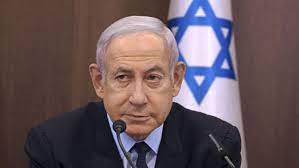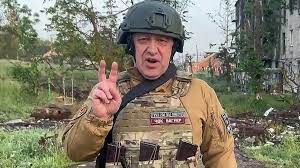
In a recent incident that has garnered significant attention, protests have erupted in Libya following an informal meeting between Libya’s foreign minister and her Israeli counterpart. The meeting has elicited strong reactions due to Libya’s historical support for the Palestinian cause and its refusal to recognize Israel. This article delves into the details of this meeting and its implications.
A Historic Meeting Sparks Unrest
Libya’s Prime Minister has taken the step of suspending his foreign minister after it was revealed that she engaged in an informal meeting with the Israeli foreign minister. This engagement has had a profound impact, leading to demonstrations within Libya, primarily in the capital city of Tripoli.
A Pivotal Step in Diplomacy
The Israeli Foreign Minister, Eli Cohen, has characterized this meeting as a historic milestone in establishing diplomatic relations between the two nations. Israel, with the goal of cultivating stronger connections with Arab and Muslim-majority countries that do not officially recognize it, sees this meeting as a significant stride towards its objective.
Opposition and Controversy
Despite the potential for improved relations, Libya’s presidential council, representing the nation’s three provinces, has strongly opposed any normalization of ties with Israel. This council, which wields substantial political influence, has labeled such a move as illegal.
Accusations and Investigation
The situation has escalated within Libya, with the Speaker’s Office in parliament accusing the foreign minister of committing grand treason. This accusation has prompted the Prime Minister to initiate an investigation into the matter. These internal tensions underscore the complexity of diplomatic interactions in the region.
Israel’s Unexpected Announcement
Israel’s announcement of the meeting has raised eyebrows, especially considering Libya’s historical stance as a staunch supporter of the Palestinian cause. The surprising revelation has brought attention to the fact that Israel was not previously considered to be courting Libya for diplomatic ties.
Details and Intentions
The Israeli Foreign Minister, Eli Cohen, offered details of the meeting, revealing that discussions encompassed various topics, including Israeli assistance in humanitarian issues, agriculture, water management, and the preservation of Jewish heritage within Libya.
Libya’s Response
Libya’s foreign ministry has countered Israel’s narrative, asserting that the meeting was not a planned negotiation but rather an unanticipated encounter during a larger event. The ministry emphasized that no substantive discussions, agreements, or consultations transpired during this encounter.
Protests and Political Context
News of the meeting has ignited protests, particularly in Tripoli and other cities. Demonstrators have expressed their discontent by blocking roads, burning tires, and brandishing the Palestinian flag. This immediate and tangible reaction reflects the deep emotions surrounding the issue.
Broader Political Landscape
Libya’s political landscape has been turbulent for years, with divisions between the interim government recognized internationally and a rival faction situated in the eastern part of the country. The potential for diplomatic negotiations between Libya and Israel is further complicated by this political schism.
Israel’s Regional Pursuits
Israel’s endeavors to forge formal relations with Arab League countries, including both moderate states and historical adversaries, have gained momentum in recent years. The Abraham Accords, brokered by the United States, have normalized relations between Israel and countries such as the United Arab Emirates, Bahrain, Sudan, and Morocco. However, these agreements have drawn criticism from Palestinians, who perceive them as betrayals.
Seeking Clarity
The Libyan Presidential Council has sought clarity from the government regarding the meeting’s circumstances. Expressing concern that the meeting does not align with Libya’s foreign policy and national constants, the council deems it a violation of Libyan laws that prohibit normalization with Israel. This development underscores the significant implications of the informal encounter.
In summary, the informal meeting between Libya’s foreign minister and her Israeli counterpart has ignited protests and generated controversy within Libya and beyond. While Israel sees this as a historic step in diplomacy, Libya’s opposition, coupled with internal accusations and investigations, highlights the complex dynamics surrounding such interactions in the region.



